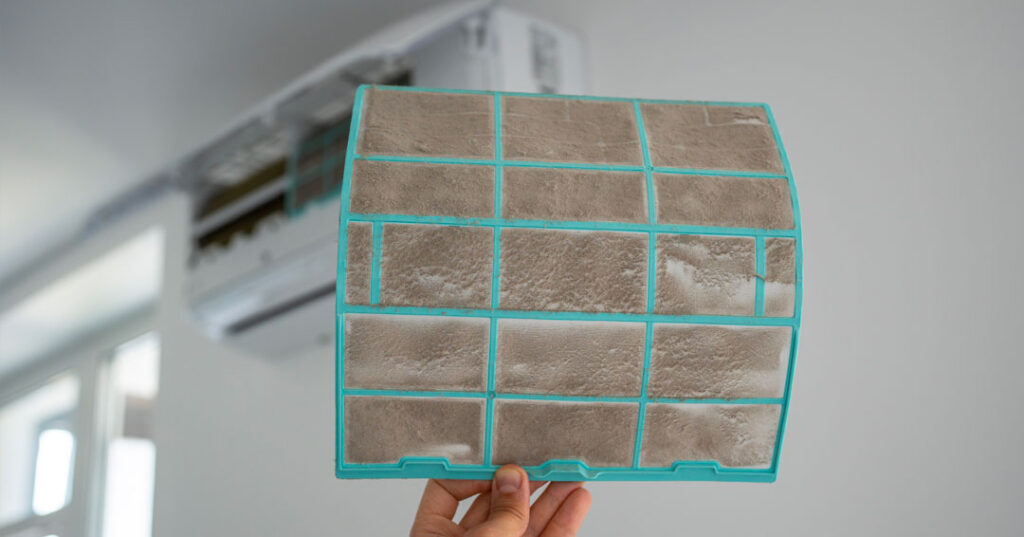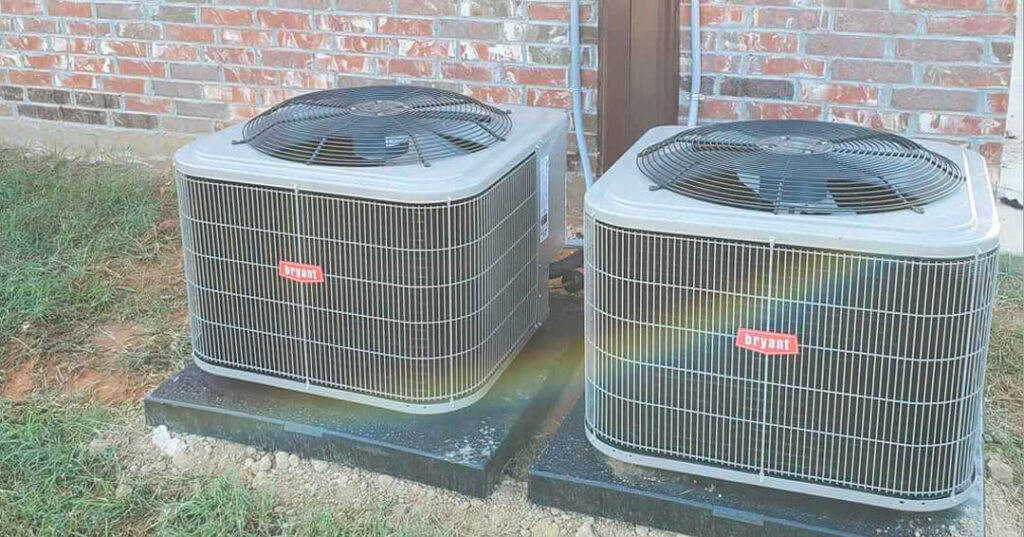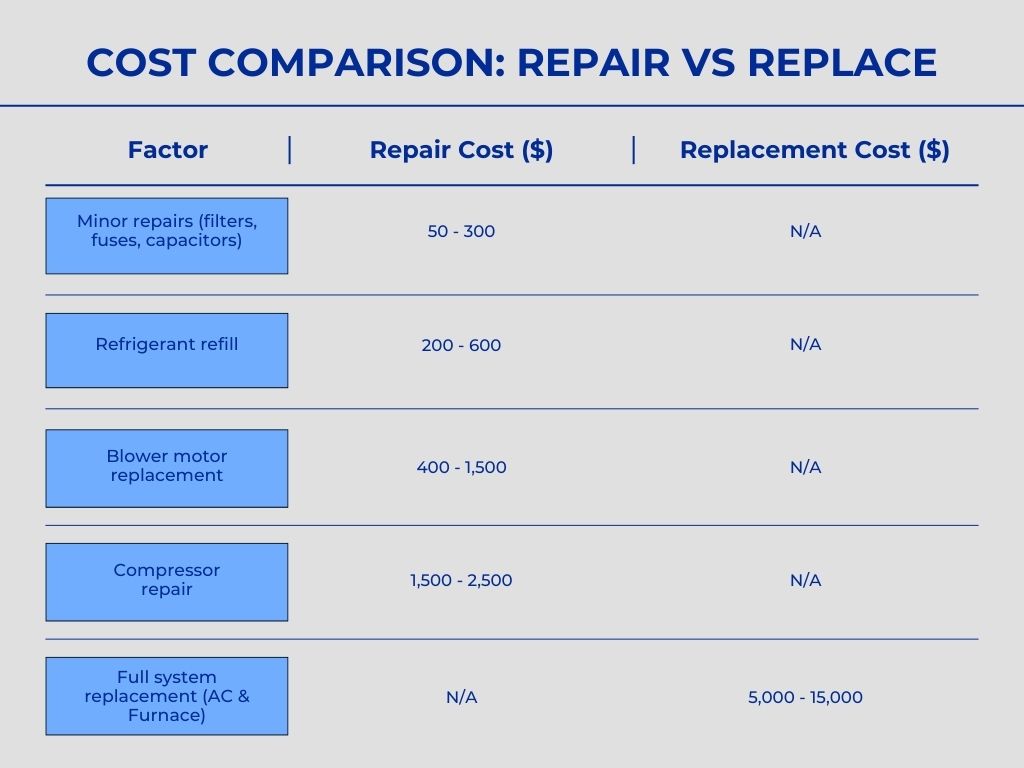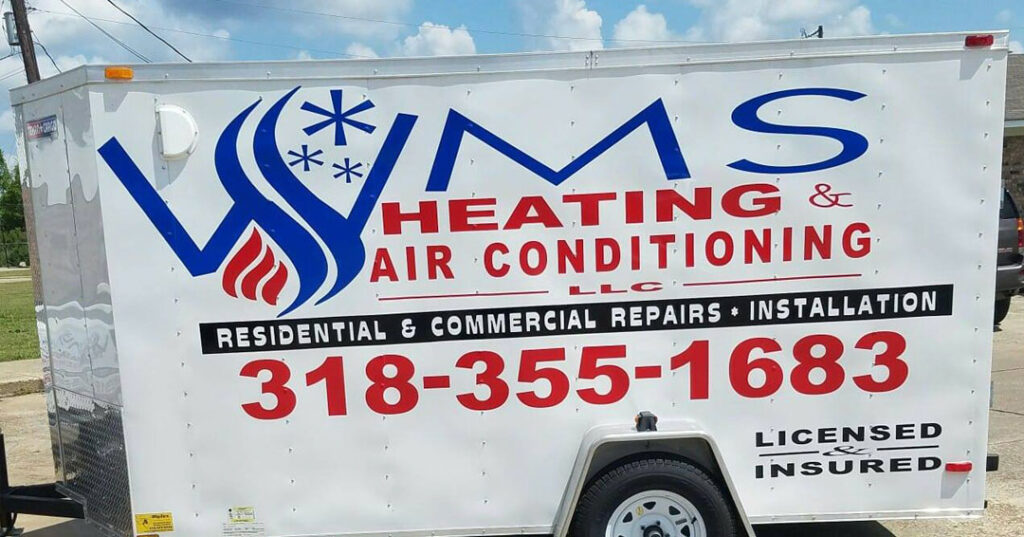
Your home’s heating, ventilation, and air conditioning (HVAC) system is essential for maintaining a comfortable living environment. But what happens when it starts acting up? Should you repair the issue or invest in a brand-new system? The decision isn't always straightforward. This guide will walk you through the key factors to consider when determining whether to repair or replace your HVAC system, including cost analysis, energy efficiency, and long-term benefits.
1. Understanding the Lifespan of Your HVAC System
Before deciding between repairing or replacing, it’s crucial to understand the typical lifespan of an HVAC system:
- Central air conditioners: 12–15 years
- Furnaces: 15–20 years
- Heat pumps: 10–15 years
- Ductless mini-split systems: 15–20 years
If your system is approaching or exceeding these age ranges, replacement might be a better long-term investment.
2. Signs Your HVAC System Needs Repair
Minor Issues That Can Be Fixed
If your HVAC system is still within its expected lifespan, repairing may be the best course of action. Here are common issues that usually warrant a repair:
- Dirty or clogged filters: Causes reduced airflow and inefficiency. Simple filter replacements can fix this.
- Thermostat issues: If your system isn’t responding correctly, recalibrating or replacing the thermostat can solve the problem.
- Refrigerant leaks: If your AC isn’t cooling properly, a technician can repair the leak and recharge the refrigerant.
- Electrical or wiring problems: Loose connections can cause HVAC malfunctions but can usually be repaired quickly.
- Blower motor or capacitor failures: Often, these can be fixed without replacing the entire system.
When Repair Costs Add Up
Sometimes, repairs can become too frequent or expensive. If you notice the following, consider replacement instead:
- You’ve had multiple repairs within the last year.
- The repair bill is more than 50% of the cost of a new system.
- Your system requires obsolete parts that are expensive or hard to find.

3. When to Consider Replacing Your HVAC System
1. Your Energy Bills Are Increasing
Older systems lose efficiency over time. If your energy bills are steadily rising despite regular maintenance, your HVAC system may be working harder than it should. Modern energy-efficient models can lower monthly costs by 20–40%.
2. Your System Uses R-22 Refrigerant
If your air conditioner still uses R-22 (Freon), replacing the system is highly recommended. R-22 was phased out in 2020, making refilling the refrigerant increasingly expensive. New models use environmentally friendly and cost-effective refrigerants like R-410A.
3. Your HVAC System Is No Longer Efficient
Newer HVAC systems come with improved SEER ratings (Seasonal Energy Efficiency Ratio). A higher SEER rating means lower energy consumption. If your unit is older than 10–15 years, upgrading to a SEER 16 or higher model can save money in the long run.
4. Uneven Heating and Cooling
Do some rooms in your home feel significantly hotter or colder than others? Aging HVAC systems often struggle to distribute air evenly, leading to inconsistent temperatures. A new system can resolve this problem.
5. Frequent Breakdowns and Repairs
If your HVAC system has needed multiple repairs in a short period, it may be more cost-effective to replace it. The $5,000 rule can help:
- Multiply the age of your system by the estimated repair cost.
- If the total is greater than $5,000, replacement is the better choice.
For example:
- A 12-year-old AC unit needing a $600 repair: 12 × 600 = $7,200 → Replace
- A 6-year-old AC unit needing a $500 repair: 6 × 500 = $3,000 → Repair

4. Cost Comparison: Repair vs. Replace

While repairs may seem more affordable in the short term, replacing your system can offer:
✔ Lower energy costs
✔ Fewer repairs
✔ Improved home comfort
✔ Higher resale value
5. Financing and Rebates for a New HVAC System
A new HVAC system can be a significant investment, but there are options to make it more affordable:
- Manufacturer Rebates: Many brands offer seasonal discounts and rebates on energy-efficient models.
- Energy Tax Credits: Upgrading to an ENERGY STAR-certified system may qualify you for tax incentives.
- Utility Rebates: Check with your local energy provider for rebates on high-efficiency HVAC systems.
- Financing Plans: Some HVAC companies offer zero-interest or low-interest financing to spread out the cost of a new system.
6. Conclusion: Making the Best Decision
The choice between repairing and replacing your HVAC system depends on several factors:
✅ Choose repair if:
- Your system is less than 10 years old.
- The repair cost is less than 50% of the replacement cost.
- The issue is minor and doesn’t affect overall efficiency.
🔄 Choose replacement if:
- Your system is over 10–15 years old.
- You’ve had multiple costly repairs in recent years.
- Your energy bills are rising due to low efficiency.
- Your system uses outdated refrigerant (R-22).

If you’re unsure about the best choice for your home, WMS Heating & Air Conditioning can help! Our expert technicians will assess your system and provide honest recommendations to keep your home comfortable year-round.
📞 Call us today for a consultation!